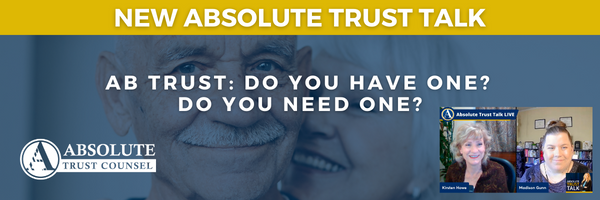Sally Janes could not wait to retire.
She and her husband, Ben, had been saving for retirement since their children had completed their college degrees. They decided the “magic number” was age 65, when they would qualify for 90 percent of their Social Security benefits. Combined with their respective retirement plans and savings account, the money from Social Security would permit them to live in comfort for the rest of their lives.

Then tragedy struck. Without warning, the company where Ben was employed as a sales manager shut its doors. Ben, age 62, was suddenly without a salary, health insurance, and other benefits. Both he and Sally had been covered under the company’s health insurance plan and since their last child had finished college, Ben had invested heavily in the company’s 401(k) plan. The company had promised to match all of his contributions. After much discussion, Ben and Sally decided that Ben would borrow money from his 401(k) plan to cover living expenses until he found a new job, and Sally, a human resources assistant, would enroll them in her company’s health insurance plan.
Unfortunately, when Ben requested a loan from his 401(k) account he discovered that the company had failed to match Ben’s contributions. Ben’s balance was only $50,000. He pulled all of the funds out of that account with the intent of rolling it over into an IRA with greater returns. But the IRA never materialized. It took Ben almost six months to find another position and by that time, the couple had not only spent his retirement savings, they had depleted their savings account
After much consideration, the couple determined they would have to continue working full-time until they received their full Social Security benefits—at age 67—and then work part-time to continue to make ends meet. Even then, money would be tight.
The face of retirement is changing. Not only has Social Security increased the age at which retirees can receive full benefits, a fluctuating economy and fickle job market have made it difficult for some to amass the funds required to ensure a comfortable retirement.
For example, if you were born in 1957, the age at which you are eligible for full Social Security Benefits is age 66.5 or 66 years and six months. While you can start receiving benefits at age 62, those benefits are reduced to only 72.5 percent of your forecasted monthly Social Security benefit. If you retire at age 65, you will receive only 90 percent of your benefit.
Studies show people are working longer and retiring later, if at all. One survey revealed that almost two-thirds of Baby Boomers—those born between the years 1946 and 1964–intend to work until age 65, and some of those do not plan to ever retire. Some will remain in the workplace to retain health benefits, while others simply cannot afford a loss of income. Still others enjoy their chosen vocation and feel no need to abandon it.
No matter the reason, with delayed retirement comes the need for more effective retirement planning. Among the concerns that must be addressed:
- Unexpected illness or disability. No one expects to become ill or disabled while working. However, illness or disability occurs more frequently in later life and that can significantly impact the financial landscape for retirement. Will unexpected medical expenses wipe out retirement savings? How will the loss of income impact retirement plans? What impact will a temporary or permanent injury, either in the workplace or during your off time, have on living expenses and retirement savings? A contingency plan that contains not only an Advance Health Care Directive and Financial Power of Attorney, as well as long-term care or disability insurance, must be considered.
- The shrinking retirement dollar. Economic downturns or slow economic growth impact the growth of retirement savings. Inflation impacts whether there will be sufficient returns to adequately support your retirement living expenses. In addition, a recent study found that the increasing number of Baby Boomers entering retirement and drawing on their retirement accounts, will significantly decrease the investment pool and impact returns on other investments. That means those approaching retirement may have to save more to pay for retirement.
- Alternative investments. Retirees tend to be savers. With so many Baby Boomers—who represent almost one-fourth of the total U.S. population–entering retirement, more people will be saving, rather than spending and investing money. An increased savings pool will impact such things as dividends, interest, and profits on dollars invested. That means retirees will experience a lower return on savings, and those currently saving for retirement will be forced to find better ways to increase returns on current investments.
- Part-time employment. A recent survey of Baby Boomers found that almost two-thirds plan to work past age 65, and more than half plan to work part-time. However, the shift to part-time employment has some hidden costs. For example, part-time positions typically do not offer healthcare insurance and other employee benefits, such as life insurance, and paid sick and family leave. You will need to subsidize the loss of those benefits or replace them altogether.
- Medicare comes in four parts: Part A (hospital insurance), Part B (medical insurance), Part C (Medicare Advantage) and Part D (prescription drug insurance). Only Parts A and B are mandatory. You may be required to pay premiums on both parts, and Part B only pays 80 percent of medical expenses, requiring that the additional expense be paid out of pocket or by supplemental insurance. When and if you enroll in Medicare affects the amount of the premium. In some cases, it may make sense to enroll earlier than later. A comprehensive review of all alternatives will determine the best approach.
There are many strategies for addressing the financial problems that may occur during retirement. Effective planning can ensure that no matter what life throws at you, you will have a comfortable retirement.

